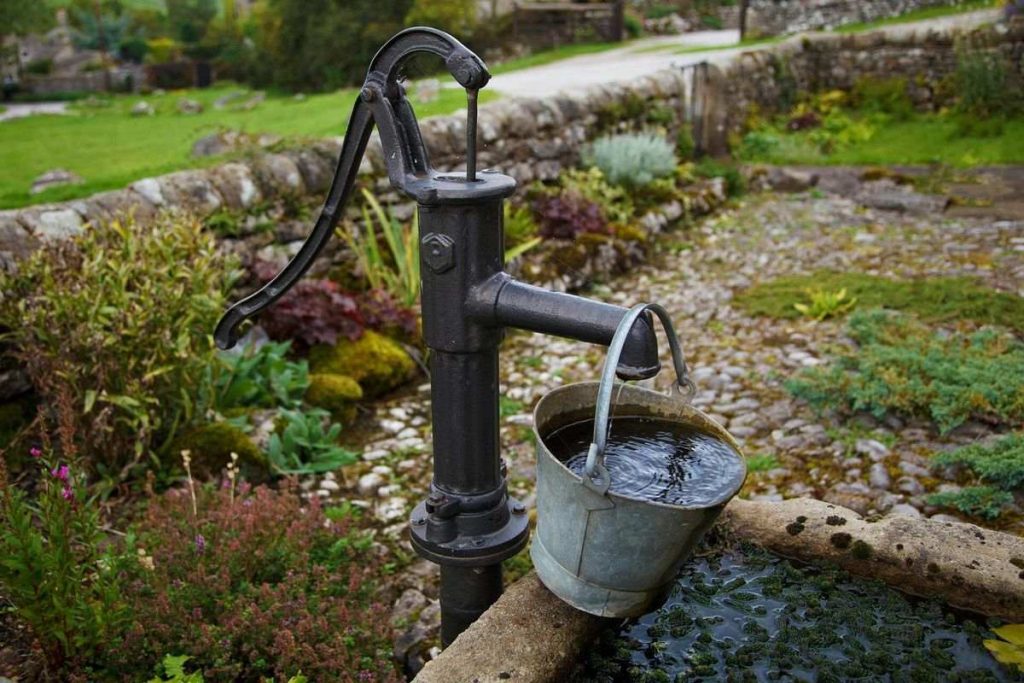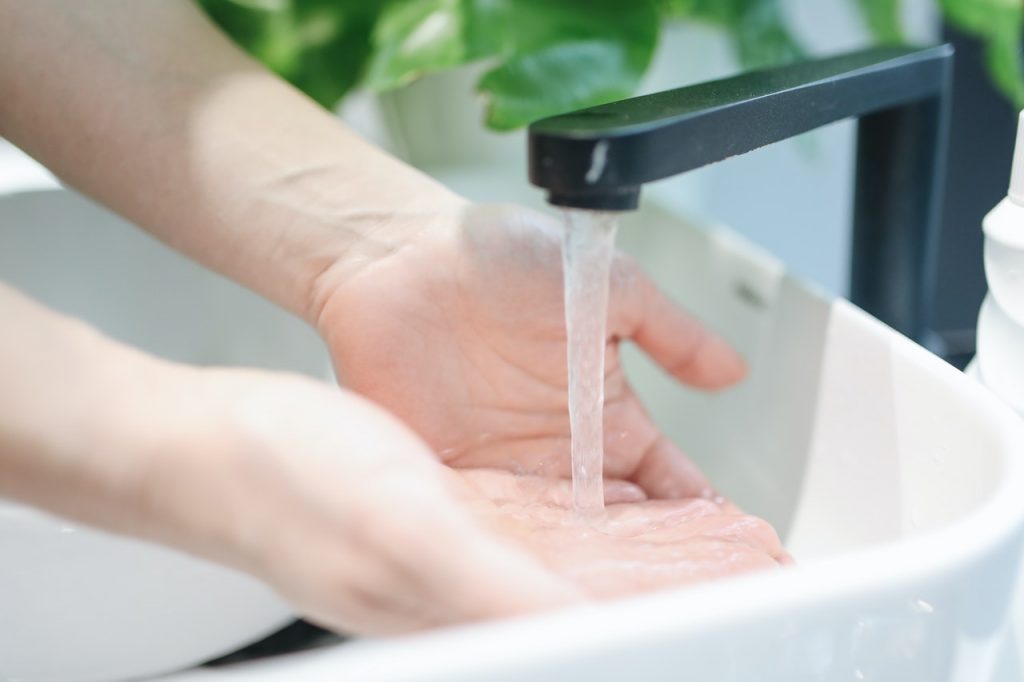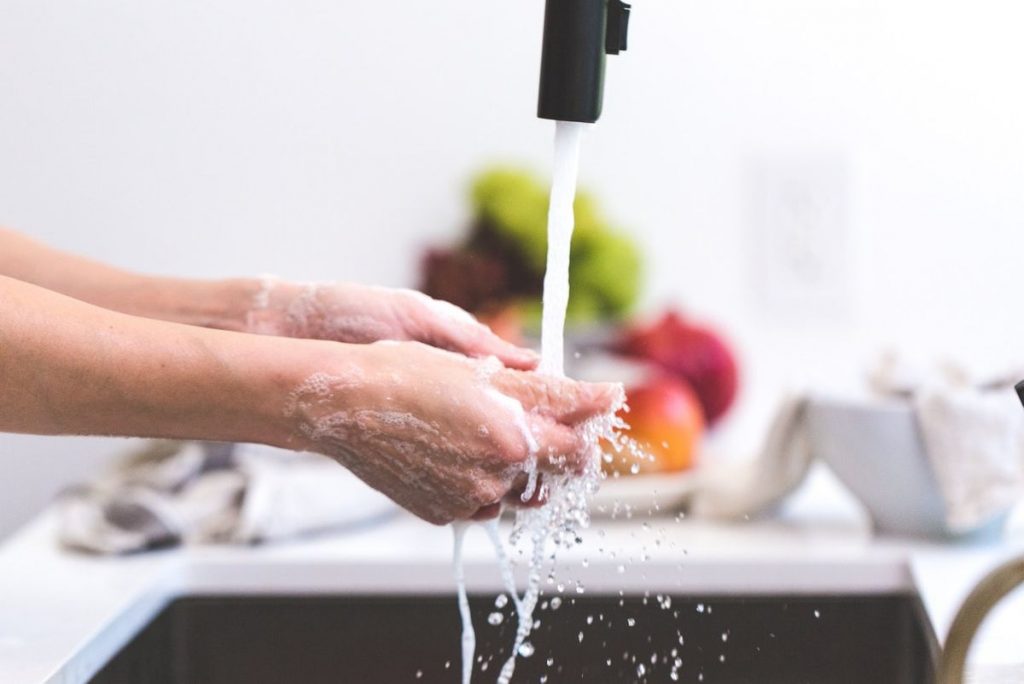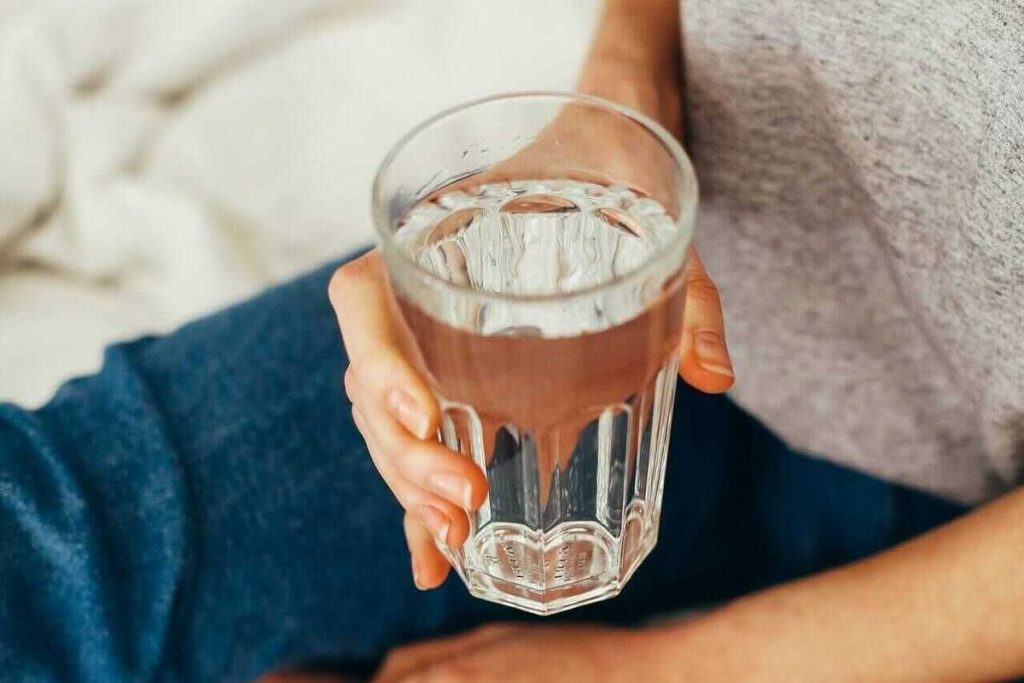For many people, having your own private piece of land away from the city where you can enjoy peace and quiet is a dream come true. It was for me, too. Let me tell you – there’s nothing like enjoying your morning coffee outside in the fresh country air, looking across a wide open field of grass and wildflowers swaying in the breeze, and listening to the sounds of birds chirping and roosters crowing.
(Pro tip: if you have roosters, sleep with a fan or white noise machine or you’ll find yourself with a living, breathing, 5am alarm clock that doesn’t snooze or turn off on Sundays! Also, they crow all day long if they feel like it.)
If you are considering buying a home with a well, there are some things you need to know. Wells can be an excellent off-grid solution to supply water to your rural home, but they require maintenance and upkeep to ensure that the water remains ideal for drinking, cleaning and cooking purposes. In this post, we will outline 7 important things you need to know before buying a home with a well.
1. Well water comes directly out of the ground
First and foremost, it is important to know where your water comes from. I know – obviously it comes from the ground. In short, city water has been collected, treated and put through a purification process, and delivered to you via water mains. Well water comes from deep in the ground through a layer called the aquifer. An aquifer is an underground layer of permeable rock and sediment that is saturated with water. It is pumped up from the ground (untreated) and carried into your home.
2. Well water is hard water
Because well water comes from so far below the surface, a lot of organic material is dissolved by the groundwater by the time it gets there. This includes minerals from the soil and rocks. Minerals like calcium and magnesium in your water are what makes it hard and causes those spots on your dishes and scale buildup around your faucets.
Unless you are in a specific region where there are naturally less of these minerals, it’s likely that you are going to need a water softener. Check out my posts on how water softeners work and how to maintain your water softener and extend its lifespan. We bought a water softener when we moved into our old farmhouse and it is 100% worth the investment!
3. Well water can sometimes smell and turn weird colors
Sometimes you might get a strange smell coming from your water. It could smell earthy, fishy or like rotten eggs. Sometimes it may even turn yellow! This could be caused by sulfur bacteria, iron bacteria or naturally occurring organic material in your water source, to name a few. This doesn’t always mean it’s unsafe to drink, but it can be an unpleasant surprise if you’re not expecting it. Luckily, these issues are usually caused by something minor that can be easily treated. If you’re looking at buying a home with a well, know that you are in charge of your own water supply and that you will be responsible for its upkeep.
It’s always a good idea to have your water tested for peace of mind if you notice a weird smell, but be aware that there are a number of reasons why your untreated well water might start to smell for a period of time.
4. Well water must be tested at least once a year
Depending on where you live, your well could become contaminated by agricultural runoff, septic tanks located too close to the well or naturally occurring contaminants like uranium, arsenic and radon. Your water can also become contaminated with bacteria such as e.coli or coliform. That is why it is so important to test your well water at least once a year.
You should also test for things like radon, arsenic, iron, manganese, nitrates and volatile organic compounds (VOCs) to make sure your well water is safe to drink. You can buy in-home water test kits to have on hand, and most municipal health departments will test for all of these things as well.
If you are in the US, you can visit this link to find out more information on private well water programs in your state.
5. Where is the well located?
Wells should not be located near your home’s septic system. This sounds obvious, but a common source of cross-contamination, especially e.coli bacteria, is from wells being too close to septic fields.
In general, wells should be at least 100 feet away from septic systems and other sources of contamination such as agricultural fields, manure storage, fuel storage and bodies of water. If you know that your well has a watertight casing to a depth of 20ft, you can get away with a 50ft distance.
6. Is the water safe for consumption?
We already know that well water should be tested at least once per year for contaminants such as bacteria and runoff. Before buying a home with a well, ask the current owner for previous water quality test results. If you are unable to find this information, get a water sample and have it tested yourself at your local health department. They will be able to point you in the right direction if the well is contaminated and help you with the steps that should be taken to purify the water.
7. What is the state of the well?
Ask the current owner about how the well has been maintained and see if you can get the maintenance records to check for the last time it was serviced. If the owner can’t find that information for you, it is a good idea to have it checked out by a professional before you invest in the home. If you’ve already purchased the home then this should be a no brainer!
Check the well cap (or well cover if it’s a dug well). The well cap should be tightly sealed and at least a foot above the ground to prevent rainwater and surface level contaminants from seeping into the well water.
Make sure the well casing isn’t visibly cracking or settling. The ground should be sloping away from the casing.
Are there any abandoned wells on the property? All abandoned wells must be decommissioned (plugged) by a professional well contractor.
Conclusion
If you are looking at buying a home with a well, it is important to be aware of what this means for you and what you should know in advance. Owning a home with a well is nothing to be intimidated by – you just need to be informed of where your water is coming from and how to maintain your water source.
Have any questions about owning a home with a well? Let us know in the comments below!





